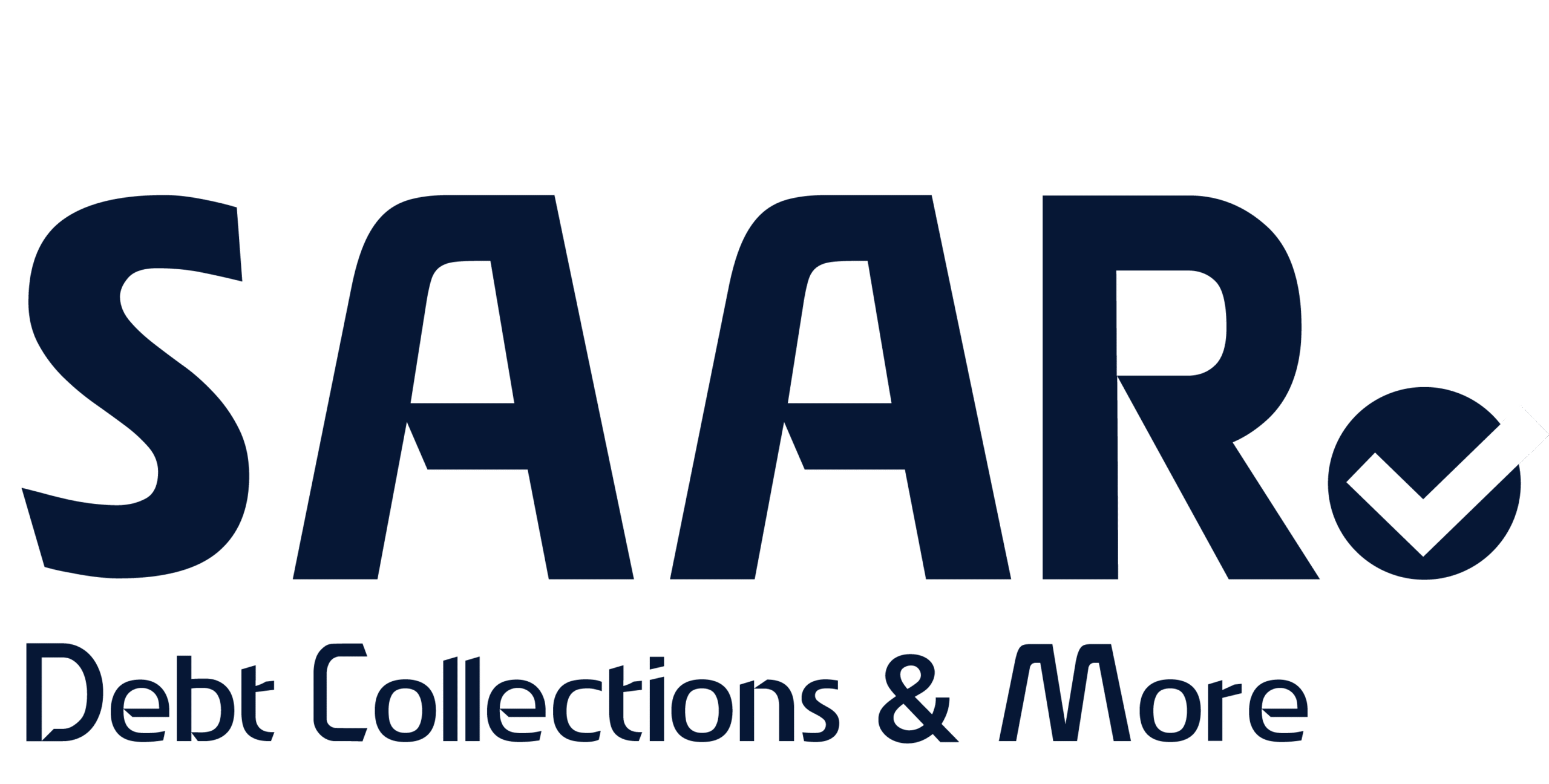شركة صار الدولية… خبرة عالمية لتحويل الديون المتأخرة إلى نجاح مالي مستدام
مقدمة
في عالم الاقتصاد العالمي الحديث، تواجه الشركات والمؤسسات تحديات متزايدة تتعلق بالتحصيل المالي، خاصة عند التعامل مع العملاء والموردين في الأسواق الدولية. فالديون المتأخرة ليست مجرد مبالغ مالية غير مستلمة، بل هي تهديد مباشر لاستقرار الأعمال، وتأخير في المشاريع، وخطر على العلاقات التجارية، وقد تؤدي إلى خسائر كبيرة إذا لم يتم التعامل معها بفعالية واحترافية.
هنا تبرز أهمية شركة صار الدولية، الشركة الرائدة في مجال تحصيل الديون على المستوى العالمي، التي تتميز بخبرة واسعة تمتد عبر القارات، وتقدم حلولًا متكاملة تجمع بين الاستراتيجيات الودية والإجراءات القانونية المحكمة، لضمان استعادة الحقوق المالية بسرعة وكفاءة، مع حماية سمعة العملاء وعلاقاتهم التجارية الدولية.
أولًا: التحديات الأساسية في تحصيل الديون الدولية
1. اختلاف الأنظمة القانونية والقضائية
كل دولة لديها قوانينها الخاصة التي تحكم تحصيل الديون، مما يجعل المسار القانوني معقدًا ويحتاج إلى معرفة دقيقة بالقوانين المحلية والدولية.
2. التواصل متعدد الثقافات واللغات
التعامل مع مدينين في دول مختلفة يتطلب قدرة عالية على التواصل متعدد اللغات وفهم الفروق الثقافية التي قد تؤثر على عملية التحصيل.
3. المخاطر المالية والعملات الأجنبية
التقلبات في أسعار الصرف قد تؤثر على قيمة الديون عند استردادها، مما يتطلب إدارة مالية دقيقة لضمان عدم خسارة الأموال أثناء التحويلات الدولية.
4. تأثير التأخير على الأعمال العالمية
الديون غير المحصلة قد تعيق خطط التوسع الدولي، وتوقف المشاريع، وتؤثر سلبًا على سمعة الشركة في الأسواق العالمية.
ثانيًا: حلول شركة صار الدولية المتخصصة للتحصيل الدولي
1. التحليل الشامل لكل حالة
تبدأ الشركة بدراسة الملف الدولي بالكامل، بما يشمل:
-
طبيعة الدين
-
جنسية المدين وموقعه الجغرافي
-
الدولة والقوانين المعمول بها
-
المستندات القانونية المتاحة
-
احتمالية الحل الودي
هذا التحليل يسمح بوضع خطة مخصصة لكل ملف لضمان أعلى نسبة تحصيل.
2. التحصيل الودي كخطوة أولى
شركة صار الدولية تعتمد دائمًا على الحلول الودية قبل اللجوء إلى الإجراءات القانونية، وتشمل:
-
إرسال خطابات رسمية محترفة متعددة اللغات
-
التواصل المباشر مع المدين بأسلوب احترافي
-
تقديم حلول دفع مرنة أو تسويات مناسبة
-
الحفاظ على العلاقات التجارية بين الطرفين
3. الإجراءات القانونية الدولية
في حال فشل الحلول الودية، تنتقل الشركة إلى الإجراءات القانونية، والتي تشمل:
-
رفع القضايا أو طلبات التنفيذ وفق قوانين الدولة المعنية
-
التعاون مع محامين محليين لضمان تطبيق الإجراءات القانونية بدقة
-
تنفيذ الأحكام عبر الحجز على الأصول أو الحسابات المصرفية
-
متابعة العمليات القانونية حتى استرداد كامل المبلغ
4. التنفيذ وتحويل الأموال بأمان
بعد استصدار الأحكام، تتابع الشركة عملية التنفيذ وتحويل المبالغ المستردة إلى العميل بطريقة آمنة، مع الالتزام بالقوانين المصرفية الدولية.
5. الشفافية والتقارير المستمرة
تقوم الشركة بتزويد العميل بتقارير مفصلة عن كل خطوة في عملية التحصيل، بما في ذلك التقدم المحرز، الإجراءات المتخذة، وأحدث التطورات، لضمان الاطلاع الكامل على الملف.
ثالثًا: ميزات شركة صار الدولية في التحصيل العالمي
1. خبرة دولية واسعة
لقد تعاملت الشركة مع ملفات تحصيل ديون في مختلف القارات والدول، بما في ذلك الشركات متعددة الجنسيات والعملاء والموردين الدوليين.
2. فريق قانوني متخصص دوليًا
يضم فريق الشركة محامين ومستشارين على دراية بالقوانين الدولية، ونظم التحكيم، والإجراءات القانونية المتنوعة، لضمان استيفاء جميع الحقوق القانونية للعملاء.
3. حلول مخصصة لكل ملف
تصميم خطة تحصيل مخصصة لكل حالة وفق طبيعة الدين والبلد، مع مراعاة القوانين المحلية والاتفاقيات الدولية.
4. حماية سمعة العملاء عالميًا
التحصيل يتم بأسلوب يحافظ على سمعة العميل وعلاقاته التجارية، حتى عند اتخاذ إجراءات قانونية صارمة.
5. سرعة وكفاءة عالية
بفضل الخبرة الدولية والتقنيات الحديثة، يتم تحصيل الديون بسرعة تفوق الطرق التقليدية، مع تحقيق أفضل النتائج الممكنة.
رابعًا: نصائح لتجنب الديون المتأخرة دوليًا
-
صياغة عقود واضحة ومتعددة اللغات قبل بدء أي تعامل تجاري.
-
تحديد مواعيد سداد دقيقة وربطها ببنود جزائية واضحة.
-
استخدام طرق دفع آمنة وموثوقة، مع تأكيدات مصرفية.
-
متابعة العملاء الدوليين بشكل دوري قبل حلول موعد السداد.
-
التواصل المبكر مع شركة تحصيل متخصصة عند أي تأخير محتمل.
خاتمة
تحصيل الديون الدولية ليس مجرد عملية مالية، بل هو حماية للأعمال واستقرار للمشاريع العالمية، والحفاظ على سمعة الشركات في الأسواق الدولية.
شركة صار الدولية تقدم لعملائها حلولًا متكاملة، تضمن تحويل الديون المتأخرة في أي دولة حول العالم إلى أموال محصلة بسرعة وكفاءة، مع الحفاظ على العلاقات والسمعة التجارية.
في عالم التجارة الدولية، الديون لا تنتظر، ومع شركة صار الدولية، حقوقك المالية دائمًا في أمان.










